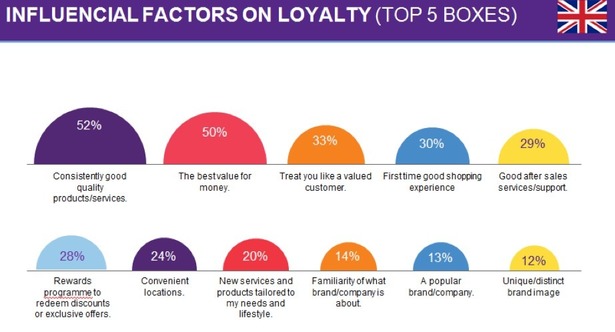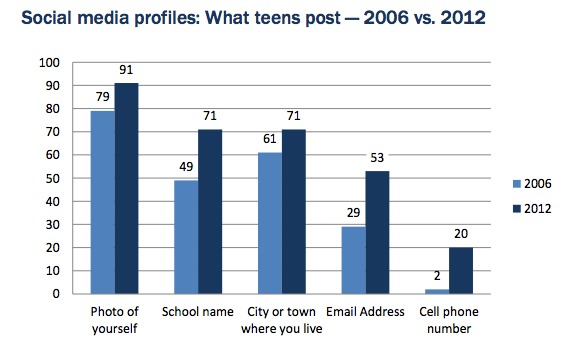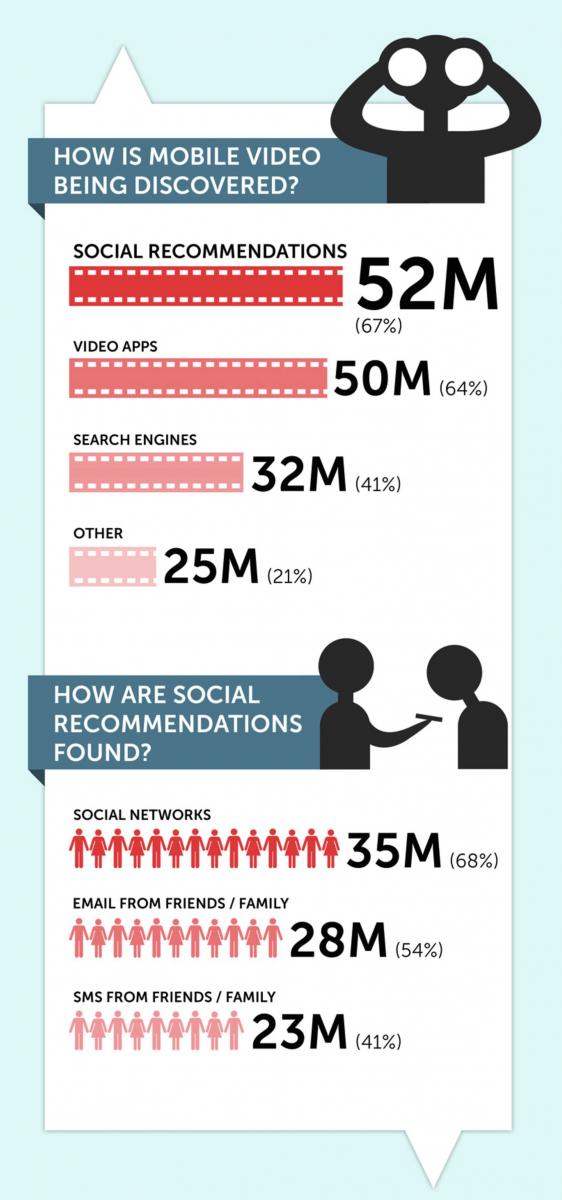By Nick Johnson - May 27th, 2013
Wednesday Update including: how recommendation is driving video discovery, how much personal information teens now reveal and how brand loyalty has changed.
It pays to be brand loyal
One of the key drivers behind Facebook likes has always been discounting or special offers that are often used by brands to entice new followers. However, new research from Epsilon suggests that only 15% of consumers believe that their brand loyalty delivers any benefits to them.
The squeeze on wallets has clearly impacted the overall spending power of consumers, who are not as keen as they once were to spend extra on branded goods. However, the research did conclude that nearly a third of consumers see incentive programs as a way to secure their loyalty to a brand. Social media it seems can have a major impact on that loyalty, but this is being tested due to the current economic environment.
And the research overwhelming conclude that the quality of the customer service that a brand delivers far outweighs any other factor – including price – when it comes to loyalty, and more importantly why people switch to a different brand. With customer service increasingly being delivered over social media networks, brand loyalty and customer services now have a symbiotic relationship.

Making social personal
Even with a constant stream of security headlines about social media networks, new research from Pew has shown that over two-thirds of teens are quite happy to post highly personal information on their social media networks. The key conclusions of the research are:
- Teen Twitter use has grown significantly: 24% of online teens use Twitter, up from 16% in 2011.
- The typical (median) teen Facebook user has 300 friends, while the typical teen Twitter user has 79 followers.
- Focus group discussions with teens show that they have waning enthusiasm for Facebook, disliking the increasing adult presence, people sharing excessively, and stressful “drama,” but they keep using it because participation is an important part of overall teenage socializing.
- 60% of teen Facebook users keep their profiles private, and most report high levels of confidence in their ability to manage their settings.
- Teens take other steps to shape their reputation, manage their networks, and mask information they don’t want others to know; 74% of teen social media users have deleted people from their network or friends list.
- Teen social media users do not express a high level of concern about third-party access to their data; just 9% say they are “very” concerned.
- On Facebook, increasing network size goes hand in hand with network variety, information sharing, and personal information management.
- In broad measures of online experience, teens are considerably more likely to report positive experiences than negative ones. For instance, 52% of online teens say they have had an experience online that made them feel good about themselves.
It seems that corporations that are looking for more intimate information about the lucrative teen market don’t necessarily have to find ways to entice these groups into giving up this information, as they are more than happy to oblige.

Video found through recommendation
Every brand knows that video content has become the number one most popular type of content that is shared across social media networks. New research from Telly now tells us how consumers are finding these videos. Not surprisingly its recommendations that drive the traffic to the most popular videos.
The core conclusions from the research include:
- 23 million watch videos recommended through texts or MMS.
- 35 million view mobile videos after viewing recommendations on social networks.
- 28 million check out videos after receiving emails from friends and family.
Says Telly CEO Mo Al Adham: “We’re experiencing a new dawn in digital video. Mobile users are looking for an easy, low-effort way to quickly find great content while on the go. Social recommendations are a natural fit to quickly guide consumers to great content, especially in a mobile environment where it’s difficult to search. We believe this means there’s an enormous opportunity to create easier discovery technologies and services for mobile video.”

Until next time….
The Useful Social Media team.
Next Reads
June 2014, New York
Become a social business: For superior marketing response, sharper corporate decision-making, enhanced innovation and a happier, more loyal customer
Brochure Programme